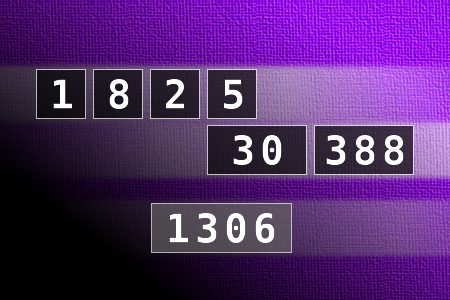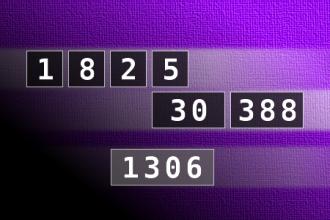Calculate the number 1306
NUMBERMANIA: Calculate the number 1306 using numbers [1, 8, 2, 5, 30, 388] and basic arithmetic operations (+, -, *, /). Each of the numbers can be used only once.
The pickle slicer
Bill worked in a pickle factory. He had been employed there for many years when he came home one day to confess to his wife that he had a terrible compulsion. He had an urge to stick his penis into the pickle slicer.
His wife suggested that he should see a sex therapist to talk about it, but Bill said he would be too embarrassed. He vowed to overcome the compulsion on his own.
One day a few weeks later, Bill came home and his wife could see at once that something was seriously wrong.
"What's wrong, Bill?" she asked.
"Do you remember that I told you how I had this tremendous urge to put my penis into the pickle slicer?"
"Oh, Bill, you didn't!" she exclaimed.
"Yes, I did," he replied.
"My God, Bill, what happened?" she asked.
"I got fired," he replied.
"No, Bill. I mean, what happened with the pickle slicer?" she demanded.
"Oh... she got fired too."

